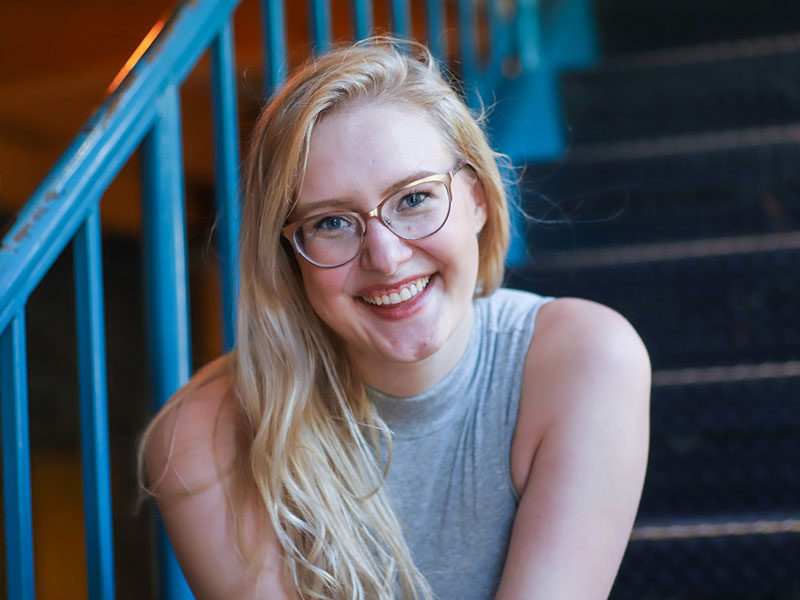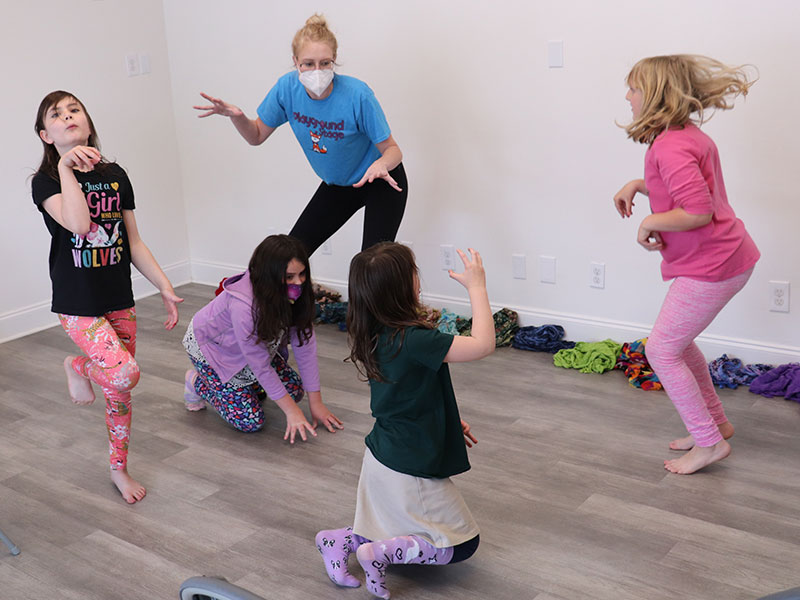Access to the Arts
Madeline Geier ’17 is on a mission. Make that several missions. She’s a full-time program director for Arts For Life, a North Carolina–based nonprofit that brings visual art, music, and theatre to children’s hospitals. She’s also an arts and theatre educator, an intimacy choreographer, an accessibility consultant, and co-leader for the Theatre for Young Audiences/USA Disability Affinity Group.

Madeline Geier '17
The throughline in Geier’s various endeavors, she says, is the question: How can we make this experience equitable, accessible, and joyous for as many people as possible?
Geier traces the origin of that question back to Luther. As a theatre major, she realized she was less interested in acting than she was in stage direction and choreography, educating others, and working behind the scenes. She felt strongly about topics that weren’t discussed often enough: consent-based intimacy choreography, accessibility, and advocacy for those living with disability, as well as the ways that arts could serve the disability community. She credits many of her Luther professors and friends with helping her navigate a way forward through her many burgeoning passions.
An internship for the Children’s Theatre Company (CTC) in Minneapolis led Geier to full-time work there after graduation. The roles she held at CTC over the course of four and a half years positioned her for her current work as program director at Arts For Life in Asheville. “This job perfectly intertwines my passion for arts education and my passion for accessibility,” Geier says.
At Arts For Life, Geier determines the programming to serve pediatric patients for five hospital sites. She decides the curriculum, plans projects, supervises onboarding, hires team members and volunteers, and sometimes implements the arts curriculum herself.

Madeline Geier helps bring art, music, and theatre to children's hospitals in North Carolina.
“We’re using the arts to provide an outlet for expression, an opportunity for joy, and agency and choice within the medical setting,” Geier says. She adds that “the arts are a tremendous way for us to express ourselves and our experiences.”
Geier also works as an accessibility consultant for theatre companies, writing accessibility statements (like what accommodations the theatre can provide to those with disabilities) and consulting on new initiatives, projects, or expansions the organization can make to be more accessible.
“There’s a mantra: nothing about us without us,” she says. “It’s the idea that there shouldn’t be decisions or advocacy happening without including the people those things are directly affecting.” So a significant part of her work involves connecting clients with people who have certain lived experiences.
“Arts and culture are about possibility, creativity, and imagination,” Geier says. “How does that not intertwine with accessibility?”